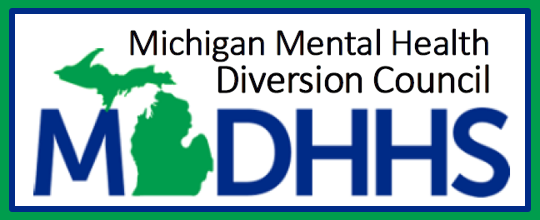Who is AOT for?
Criteria for AOT
Generally, an adult with a mental illness is a candidate for assisted outpatient treatment if they meet one or more of the following criteria. The immediacy of the risk of harm will determine whether hospitalization or AOT is the appropriate course of treatment.
- The individual can be expected in the near future to seriously physically injure themselves or another person and has previously engaged in acts or made threats that support that expectation.
- The individual who has mental illness, and as a result of that mental illness is unable to attend to those of his or her basic physical needs such as food, clothing, or shelter that must be attended to in order for the individual to avoid serious harm in the near future, and who has demonstrated that inability by failing to attend to those basic physical needs.
- The individual’s judgment is impaired by mental illness, lacks an understanding of the need for treatment and demonstrates an unwillingness to voluntarily participate in or adhere to treatment that is necessary to prevent a relapse or harmful deterioration thereby presenting a substantial risk of significant physical or mental harm to the individual or others.
- Read criteria as listed in the mental health code
330.1401 "Person requiring treatment" defined; exception.
Sec. 401.
- As used in this chapter, "person requiring treatment" means (a), (b), or (c):
- An individual who has mental illness, and who as a result of that mental illness can reasonably be expected within the near future to intentionally or unintentionally seriously physically injure himself, herself, or another individual, and who has engaged in an act or acts or made significant threats that are substantially supportive of the expectation.
- An individual who has mental illness, and who as a result of that mental illness is unable to attend to those of his or her basic physical needs such as food, clothing, or shelter that must be attended to in order for the individual to avoid serious harm in the near future, and who has demonstrated that inability by failing to attend to those basic physical needs.
- An individual who has mental illness, whose judgment is so impaired by that mental illness, and whose lack of understanding of the need for treatment has caused him or her to demonstrate an unwillingness to voluntarily participate in or adhere to treatment that is necessary, on the basis of competent clinical opinion, to prevent a relapse or harmful deterioration of his or her condition, and presents a substantial risk of significant physical or mental harm to the individual or others.
- An individual whose mental processes have been weakened or impaired by a dementia, an individual with a primary diagnosis of epilepsy, or an individual with alcoholism or other drug dependence is not a person requiring treatment under this chapter unless the individual also meets the criteria specified in subsection (1). An individual described in this subsection may be hospitalized under the informal or formal voluntary hospitalization provisions of this chapter if he or she is considered clinically suitable for hospitalization by the hospital director.
- As used in this chapter, "person requiring treatment" means (a), (b), or (c):
- Listen to Judge Milt Mack (ret.) explain the mental health code
Clinical assessment
Clinical assessment is an important part of the assisted outpatient treatment process. In cases where an individual has not previously received a psychiatric evaluation, one is conducted before the order is issued. Further, clinicians (often from the Community Mental Health agency) testify in court to the individual's condition and make treatment recommendations.
How is guardianship different from assisted outpatient treatment?
When a person, as a result of their mental illness, requires additional support to avoid harm to themselves or others, AOT and guardianship are both options for the required additional support. The following table presents circumstances that may, depending on the unique needs of the person requiring additional support, make either AOT or guardianship a better choice. Please note this information is provided only for guidance and should not be interpreted as definitive. Additionally, AOT and guardianship are NOT mutually exclusive, and in some cases a combination of the two may be the best approach.
| The best candidates for guardianship... | The best candidates for AOT... |
|---|---|
| ...are unlikely, even with treatment, to be able to make sound, independent decisions | ...are likely, with treatment, to be able to make sound, independent decisions. |
| ...have a limited history of autonomously functioning. | ...have a history of autonomously functioning. |
| ...have medication allergies, contraindications, or their condition is treatment resistant. | ...do not have a history of medications that are contraindicated. |
We encourage you to review the videos below for more in-depth discussion of this topic.


